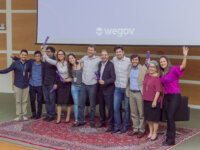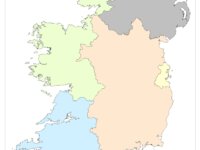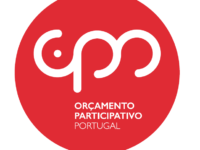HubGov is an interinstitutional program of innovation in Government that has the participation of institution from the three spheres and three powers. Through a learning trail in innovation and intrapreneurship skills, each institution comes up with a complex challenge and at the end of the program presents a solution proposal to this challenge.
Innovation Tag: People Networks/Communities of Practice
Experimentation Works (EW) is a Government-of-Canada initiative to build public servants’ capacity in experimentation skills and practice through a learning-by-doing model that supports and showcases 5 small-scale experiments in the open. EW seeks to generate practical examples of experiments and ensure open access to learning materials, progress updates and results for broad impact. It works by connecting project teams with each other, and with experts in a open-by-default “cohort model."
The Government Digital Service and the Ministry of Housing, Communities and Local Government launched the Local Digital Declaration to support and unite local authorities around a shared understanding of good digital practice.
It is a unique call to action that addresses the legacy IT contracts, isolation of procurement practices and siloed digital projects that have left local government services vulnerable to high delivery costs and low customer satisfaction for the public they serve.
Climate change requires comprehensive responses at local and regional level which makes local government critical to the delivery of national and international policies. The establishment of four Climate Action Regional Offices (CAROs) as Centres of Excellence based on distinct geographic/topographic characteristics enables them to advise local authorities in their region on climate action strategies ensuring a coordinated response and assisting with the roll-out of national/regional policies at…
With the drafting of its first Constitution, Mexico City had a great opportunity: to explore innovative ways of crowd-sourcing this historic document, setting an example to other cities in the world on how to design important democratic experimentation at the scale of a megalopolis. The result of the entire Constitutional process is a forward-thinking document with progressive social policy and human rights at its heart. It became a legal reality in September 2018.
The Portugal Participatory Budget (PPB) is a democratic, direct and universal process that allows civil society to decide on public investments in different governmental areas.
It is the first nationwide public participatory budget in the world, enhancing its originality. PPB helps to bring people closer to politics and decision-making, while promoting a deeper connection between regions, integrating the coastline and interior areas, as well as the rural and urban areas.
GovTech Poland is a completely new way of bringing innovations to the public sector. We have set out to define new procurement rules, set standards and build bridges between innovators and officials. Organising competitions, workshops, and introducing new digital solutions ourselves, our objective is to make the administration an agile, responsible partner for SME's and startups.
Social innovations offer many new solutions to today’s challenges. Yet, they encounter difficulties in becoming known. Social innovation Crossroad offers a precise vision of social innovations in France. To do so, a search engine gives access to 5000 projects already capitalized by 50 actors. Financers, coaches, academics and projects holders now get reliable information, automatically up-to-date and enter a new community. Small as well as big projects are highlighted the same way.
The Open Innovation Team is a new Cabinet Office team created to help departments generate analysis and ideas for priority projects by deepening collaboration with academics. We boost engagement between officials and academics by organizing tailored events and visits, and we get academics involved in research and policy projects by inviting them to work alongside us in Whitehall.
Gwanghwamoon 1st street served as a people’s transition office that collected citizen's suggestions for the new government through a variety of platforms including website, temporary office, local branches installed in every municipality, telephone, text message, and email. For 49 days after its launch in May 2017, it collected 180,705 suggestions, of which 99 were reflected in the national agenda.




